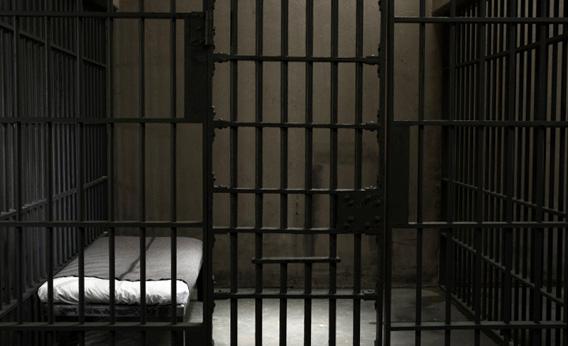This question originally appeared on Quora.
Answer by Dominick Whitaker, inmate San Quentin State Prison:
In 1996, I started my 25 years to life sentence under California’s three-strikes law for the theft of a rental car, at Calipatria State Prison, a Level IV maximum security facility on the border of California and Mexico.
At that time, Calipatria was probably one of the most violent prisons in California’s prison industrial complex. The first sign you see upon arrival states, “No Warning Shots Fired Here.” Within the next four hours, I would witness why. On our way to our newly assigned housing units, a race riot broke out on the yard between blacks and southern Mexicans. As all hell broke loose, the guards who were escorting us ran to take over while the melee continued. In the midst of the riot, an inmate was killed. For the next seven hours, we laid facedown on 90-degree concrete until everyone was searched, handcuffed, and placed on a diagram sheet of the incident.
Finally, I arrived at my assigned cell. I really didn’t know what to expect, being housed in a 6x9 cell with a total stranger who been convicted of murder. To tell you the truth, I was terrified, but I had to act like I wasn’t afraid of anything. You can’t afford to look weak in prison. Most of the ideas I had about maximum security prisons were what I had heard or seen on television or in the movies.
Upon your arrival, you’ll be asked to show your commitment papers to see what you’re in for and to make sure you’re not a rapist or child molester. Because if you’re one of those two, no one wants you as their “cellie” (cell mate) because sooner or later, you will encounter some bad karma!
I really felt out of place because I was doing 25 years to life for a property crime, and here I’m in the midst of guys that have committed some of the worst violent crimes imaginable. I see why so many inmates play crazy or become immersed in religion, hoping that they can fade into the background and not be targeted by the alpha gangs.
In my four years at Calipatria, I was housed with several inmates who were convicted of murder. In the 16 years I’ve been incarcerated, I’ve never heard another inmate brag that they had killed someone. Believe it or not, it’s not like a “Badge of Courage,” it’s more like a “Badge of Disgrace.” Actually, very few of them really liked to talk about their crimes unless they were in some kind of self-help or victim’s group. Most of them are really remorseful and ashamed that they took another life. I guess most people outside of prison think we’re all monsters with no feelings or remorse.
My first cellie was convicted of murdering his girlfriend and her brother during a bad drug deal. He used to have traumatic nightmares where he would wake up screaming in his sleep. It took me many months before I felt comfortable getting a full night of sleep, without sleeping with one eye open and both ears attuned to the slightest sound or movement. This is an experience that I will never forget, because you have to wonder if you’re safe inside a 6x9 cage with a total stranger who has a prior violent past and has been convicted of murder. There is no one there to help or protect you at 3 a.m. You have to realize and understand that violence is always right below the surface in prison. It doesn’t take much for it to turn into a tidal wave very quickly. I have seen some very violent confrontations with cellies over the most trivial things.
Some people are more prone to violence because of their childhood dramas that have left them so damaged and hurt that they don’t have the coping skills to properly address confrontations. As a result, we medicate our pain, suffering, and shame with sex, drugs, and alcohol, which in the end perpetuates our violence. Not that any of this condones bad behavior, because it doesn’t! That’s why I truly believe that “Hurt People Hurt People and Healed People Heal People.”
You wouldn’t ever guess most of the guys here at San Quentin who have been convicted of murder (if they aren’t on death row). Two of my mentors in The Last Mile (training program) are so involved in many self-help groups and outside groups (that help at-risk youth) that they don’t have much time for themselves. In addition, they have done the hard work of addressing their own childhood issues and dramas that seriously clouded their decisions as young adults. I’m quite proud to be in the company of these gentlemen, and I look forward to all of us working together outside of these prison walls.
In suffering our traumas, we have lost connections to a place that signaled that we belong. When we lashed out from that pain to cause more pain, we lost our rightful place in our community. Committing our crimes and doing time in prison disconnects us from the larger community. Remembering where we’ve come from, remembering who has been affected by our past actions, as well as reaching out to those that will benefit from our commitment to heal and be of service, begins a process through which we can earn back our status as members of society.
All communications between inmates and external channels are facilitated by approved volunteers since inmates do not have access to the Internet. This program with Quora is part of The Last Mile San Quentin. Twitter: @TLM
More questions on Crime:
